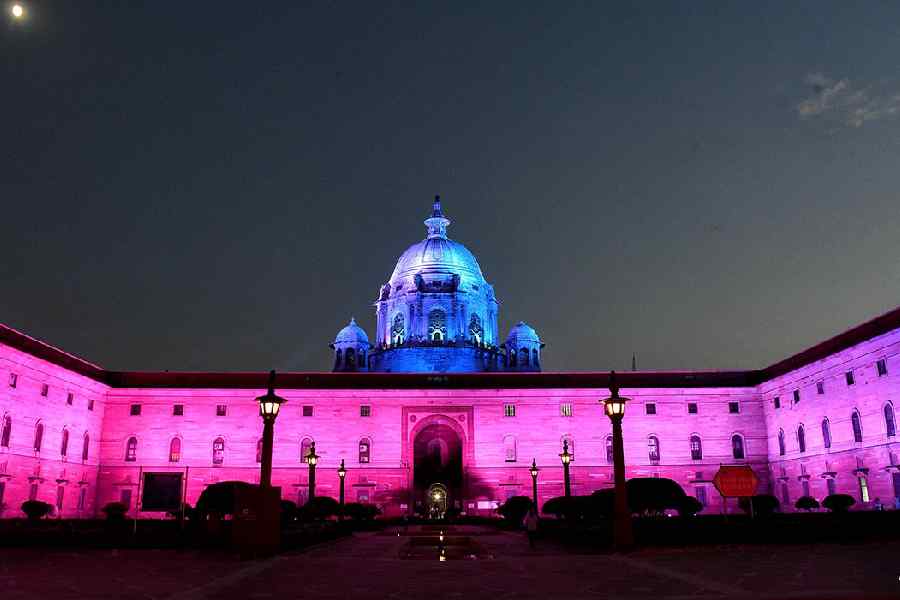The upcoming Yuge Yugeen Bharat National Museum – billed to be the largest museum in the world – will have eight thematic segments telling the story of India spanning over 5,000 years.
The new museum, housed in the North and South blocks in the heart of the country's capital, will cover an area of 1.17 lakh sqm with 950 rooms spread over a basement and three storeys, officials said.
On the occasion of the International Museum Day on May 18, Prime Minister Narendra Modi had launched a virtual walkthrough of the upcoming museum after inaugurating a three-day International Museum Expo at Pragati Maidan here.
On Wednesday evening, Modi inaugurated the International Exhibition-cum-Convention Centre (IECC) complex, developed at a cost of about Rs 2,700 crore with a campus area of approximately 123 acres, and unveiled its new name – Bharat Mandapam.
During his address at the inauguration, Modi also announced Yuge Yugeen Bharat National Museum.
The museum will have "eight thematic segments" and will showcase the rich civilisational culture of India spanning over 5,000 years, officials said.
The segments broadly include ancient Indian knowledge, ancient to medieval, medieval, medieval to transition phase, modern India, the colonial rule (when the Dutch, the British, the Portuguese and others came to India), the freedom struggle and the 100 years from 1947 onwards,including the vision ahead, the senior official told PTI. It is a “forward-looking museum,” he added.
The virtual walkthrough of the museum provides a digital experience into how the galleries and gardens in it will appear once the museum is completed. It showed that the galleries through exhibits will inform the visitor about ancient town planning systems, the Vedas, Upanishads, ancient medical knowledge, etc.
Mauryan to Gupta Empires, Vijayanagara Empire, Mughal Empire, and the rule of several other dynasties are mentioned in the walkthrough.
Ancient artefacts and other rich collections of the National Museum, located on Janpath here, are planned to be shifted to the buildings of the North and South Blocks as part of the project, a senior official had said earlier.
The South Block houses the External Affairs Ministry, the Defence Ministry and the Prime Minister's Office, while the North Block has the ministries of finance and home.
Union Minister of State for Culture Meenakashi Lekhi has said that the current National Museum building will become part of the Kartavya Path and the annexes of the Kartavya Path.
The foundation of the present National Museum building was laid by first Prime Minister Jawaharlal Nehru on May 12, 1955.
The Kartavya Path, previously called Rajpath, is a ceremonial axis that runs from India Gate to Raisina Hill.
Except for the headline, this story has not been edited by The Telegraph Online staff and has been published from a syndicated feed.











